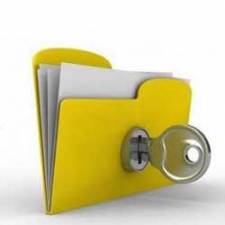 PURPOSE:
PURPOSE:
The purpose of this procedure is to define the processes used to control the inspection and documentation associated with purchasing
SCOPE:
This procedure applies to all purchases whether for goods, services or sub contractors.
DEFINITIONS:
Supplies Department: An organisation within the Trust through which all purchases must be made.
STANDING ORDERS; CALL OFF ORDERS:
Standing Orders are where the Department requires a part issue of goods or services from the supplier on a regular basis, e.g. weekly or monthly. Call Off Orders are where, although a bulk issue is ordered, the goods or services are not needed on a regular basis, but are requested as and when required.
RESPONSIBILITIES:
It is the responsibility of the EBME Manager to control the documentation and inspection of purchases. It is the responsibility of the Quality Assurance Manager to ensure that this procedure is carried out.
QUALITY PROCEDURE:
Stores and services are ordered using a requisition form. The requisition form is a Trust/Supplies internal document that is normally prepared by the Clerical Assistant. The EBME Manager will check and sign all purchase requisition forms for purchases. The Facilities Manager or the deputy checks and signs all requisitions above agreed limits. The department must at all time be compliant with the Standing Financial Instructions (SFI's) of Trust.
Stores such as spare parts etc. are ordered through the Supplies Department. This department must meet the appropriate purchasing policy requirements of the Trust. The supplies department is invariably used as a reference when new suppliers are required. (New suppliers are vetted and recorded on the Computerised Management System - CMS). The supplier's list is available to the EBME Manager within the CMS if required. A close liaison is maintained on all aspects of the Standard between the Quality Assurance Manager and the Supplies Manager. Supplies must be kept informed of any serious non-conformances that are the result of poor performance by suppliers, so that appropriate action can be taken.
The requisition forms will have the appropriate finance code entered by the Facilities Department and they will pass the documentation to the NHS Supplies organisation. The original is retained on file in requisition number order by the Clerical Assistant. A log is held of all requisitions.
The Supplies organisation will allocate an order number and confirm that the order has been placed by sending copies of a Purchase Order back to the EBME Department who will ensure that the requisitioned items and the purchase order items are identical. (Other copies of the purchase order are outside the scope of this procedure.) The Finance Department authorises the Purchase Order.
The Department invariably receives goods direct from the supplier and not via Supplies. Normally the Clerical Assistant signs the delivery note for packages (not contents) received. She will check that the contents are satisfactory with the technician who has requested the Goods.
If it is a stock item the Clerical Assistant will enter the details onto the database (see stores procedure).
The order number will be added to the requisition and the documentation is passed to the Facilities Manager. Copies are retained.
(In an emergency, a Purchase Order number may be obtained from supplies by telephone to enable stores or a service to be ordered immediately. The requisition process follows the same procedure as before).
Some goods are ordered by the Department through NHS Supplies but are not all required immediately. Generally speaking these are referred to as "Call offs".
When the call offs have been completely received, the appropriate copy is signed by the Clerical Assistant and sent to Facilities as proof of order completion.
All items are checked as they are unpacked. When non-conformances arise, they will be dealt with in accordance with Control of Errors Procedure, Customer Complaints and Corrective actions. Non conformances include any dialogue between the Clerical Assistant and the supplier regarding poor service. This will always be recorded on the original requisition form. Supplies will be informed of the action taken. When there is a discrepancy and goods are returned to the supplier, the Clerical Assistant will return the goods accompanied with documentation which explains the non-conformity.
Supplies must meet the appropriate purchasing requirements in Quality administration and will ensure that where relevant, each Purchase Order contains the following information: -
- Supplier's name.
- Date.
- Purchase Order number.
- Originator.
- Supplier's address.
- Any special delivery instructions (e.g. expected delivery date.).
- Manufacturers reference for the part (if it exists).
- Supplier's reference (where applicable).
- Description.
- Quantity.
- Price (obtained from catalogue or supplier).
- Any special specifications and standards
- Any discount.
While it is appreciated that this information is not always readily available, every effort should be made by the EBME Department to ensure that the department receives the correct Goods/services on time, the first time and every time.
GOODS AND EQUIPMENT FOR EXTERNAL REPAIR OR CALIBRATION.
When equipment is sent to external organisations for repair or calibration, details will be entered onto the database. The repair form will be passed to the Clerical Assistant who will hold it on the appropriate file. An external repair letter will be prepared by the Clerical Assistant to accompany the equipment, together with any other pertinent information. When the goods return, the repair form will be removed from the file and re-attached to the equipment. It will then remain in Goods Inwards until given a visual and safety check by an authorised technician. It will then be moved to Goods Outwards awaiting return to the customer.
SUB CONTRACTORS
A number of sub contractors carry out repair and maintenance work for the EBME Department under contract. It is the responsibility of the EBME Manager to ensure that all sub contractors meet their contractual requirements. This will be carried out by randomly monitoring both the service and documentation (e.g. Service Reports). Any anomaly will be investigated by the EBME Manager and if appropriate, passed for action to the Facilities Manager. A sub contractors contract review process is in operation to continually monitor, assess and renew contracts. When contracts are due for renewal, the Facilities Manager will send a copy of the contract to the EBME Manager. He will carry out an overall assessment of the Contract and requirements and will make appropriate documented recommendations to the Facilities Manager. A copy will be held on the Contracts file.
CONTROL OF CUSTOMER SUPPLIED PRODUCT.
When customer's products are handled by the EBME Department, every care will be taken as if they were the Department's own property. They will be verified, checked, correctly stored, segregated when appropriate and maintained. Where the received product is lost or damaged, the customer will be informed in writing immediately. It is the responsibility of the EBME Manager to ensure that customer supplied product is handled correctly.
It is the responsibility of the EBME Manager to ensure that this procedure is complied with and the Clerical Assistant's responsibility to ensure that the records and communication with Supplies are maintained.
INTERACTION
Interaction between this process, the stores procedure, and Control of Errors will include:
- Parts no longer required (parts disposal)
- EBME Loan items (equipment sent to another hospital)
- Equipment BER for disposal (beyond economical repair)
- Completion of asset register.
- The library
- Medical device evaluation of new equipment
- PPQ form approval
- Concession for the release of non conforming equipment








